Projects
Individual Development
This domain investigates the foundations of learning and development including cognitive and social risk factors.
To the project browser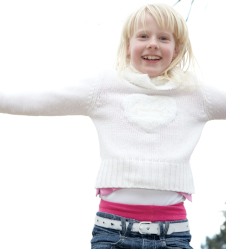
CaS
„Cool and Safe“ is a web-based program for the prevention of child sexual abuse. At Goethe University Frankfurt, its efficacy and acceptance by elementary school children was assessed.
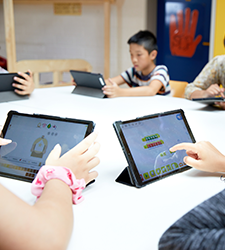
CatMo – Arena
Category learning tasks are experimental paradigms used to study how humans acquire and apply categorical knowledge. Participants learn to classify multi-feature stimuli into categories without being explicitly told the underlying rules. Performance in these tasks provides insight into processes of generalization, abstraction, and memory.
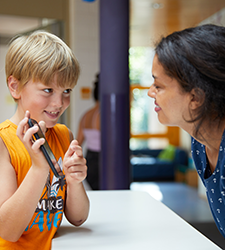
CHAT2TRANSITION
The project examines the emergence and consequences of educational decisions at the transition from primary to secondary school. It focuses on improving the information available to families and teachers. A multilingual chat assistant for families and a reflection program for teachers aim to reduce social and migration-related inequalities in educational outcomes.

CLaB
This interdisciplinary research project investigates systematically Child Language Brokering (CLB) – informal translation practices by multilingual students – in German-speaking schools. Three sub-studies explore children’s and teachers’ perspectives on CLB, its interactional patterns, and its educational potential. The aim is to collaboratively develop approaches to translingual didactics and make them applicable to everyday school practice.
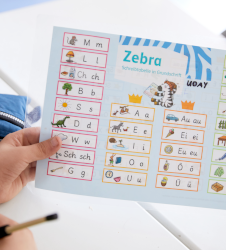
DaZ ab 6
Die Rolle des expliziten Sprachwissens für den Deutscherwerb bei SeiteneinsteigerInnen an Schulen und bei geflüchteten jungen Erwachsenen
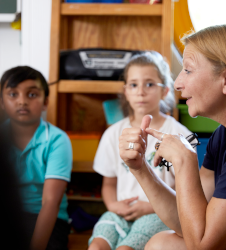
DAZHOCHZWEI
The project DAZHOCHZWEI is a cooperation between the Professorship for German as a Second Language (Goethe University, Prof. Dr. Petra Schulz), the Ministry of Education, Hesse, and the Teacher Academy, Hesse. DAZHOCHZWEI aims at implementing a linguistically based language training for children into the (continuing) education program for primary school teachers in Hesse. The project […]

DELTA
In the project DELTA we apply a working memory training with elementary school children. We investigate the impact of children’s daily experiences on training success, with a focus on motivation, well-being, and sleep on training days.
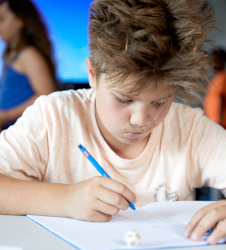
DERET
Qualitative and quantitative analysis of errors in spelling, to allow different levels of analyses for a heterogeneous population of users.
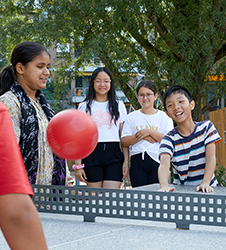
DYNAMIC Kids
In the DYNAMIC Kids sub-project of the DYNAMIC Center, we are investigating the mental health of children and adolescents using dynamic network analyses. This takes individual processes into account. We aim to provide a better understanding of individual risk and resilience factors, which will serve as a basis for personalized interventions.
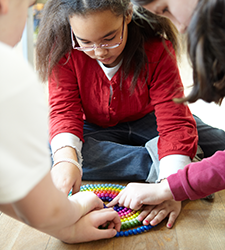
DYNAMO
The DYNAMO project investigates the association between fulfillment of basic psychological needs and motivation in children and adolescents. To that end, a measurement instrument shall be developed which allows for assessing these two constructs in these age groups.